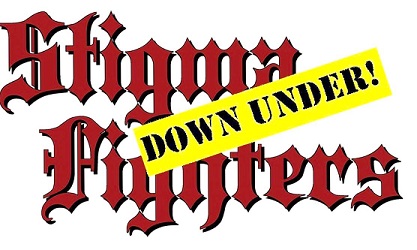Dear Mr. Sullivan,
You recently said on live radio that Bipolar Disorder is a fad. Please allow me to address your inaccurate description.
This is the Oxford Dictionary’s definition of “Fad”: An intense and widely shared enthusiasm for something, especially one that is short-lived and without basis in the object’s qualities; a craze
These are some FACTS about Bipolar Disorder as per the National Institute of Mental Health (which is a division of the U.S. government’s National Institute of Health). I’ve abbreviated and re-arranged some of the information only in an effort to save you time.
“widely shared” Sir, Do you think that 2.6% of the population is a large percentage (as someone who has Bipolar Disorder, one person is ONE too many)?
Bipolar Disorder affects approximately 5.7 million adult Americans, or about 2.6% of the U.S. population age 18 and older every year.
“enthusiasm” Sir, would you be enthusiastic about experiencing this?
Bipolar Disorder results in 9.2 years reduction in expected life span, and as many as one in five patients with bipolar disorder completes suicide. Bipolar Disorder, also known as manic-depressive illness, is a brain disorder that causes unusual shifts in mood, energy, activity levels, and the ability to carry out day-to-day tasks. Symptoms of Bipolar Disorder are severe. They are different from the normal ups and downs that everyone goes through from time to time. Bipolar Disorder symptoms can result in damaged relationships, poor job or school performance, and even suicide.
Extreme changes in energy, activity, sleep, and behavior go along with these changes in mood. (some) Symptoms of Bipolar Disorder are described below:
Extreme irritability
Behavioral Changes
Talking very fast, jumping from one idea to another, having racing thoughts
Being easily distracted, increasing activities, such as taking on new projects
Being overly restless or irritable
Sleeping little or not being tired
Having an unrealistic belief in one’s abilities
Behaving impulsively and engaging in pleasurable, high-risk behaviors
Mood Changes
An overly long period of feeling sad or hopeless
Loss of interest in activities once enjoyed, including sex
Feeling tired or “slowed down”
Having problems concentrating, remembering, and making decisions
Changing eating, sleeping, or other habits
Thinking of death or suicide, or attempting suicide
“short-lived” Sir, does the following indicate a temporary situation?:
Bipolar Disorder usually lasts a lifetime. Episodes of mania and depression typically come back over time. Bipolar disorder cannot be cured.
Best,
Bipolar Fabulous-a devout follower of fads
